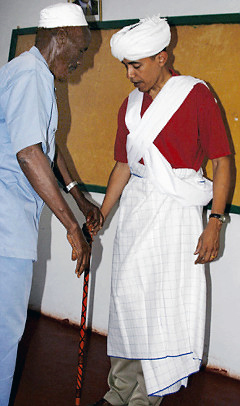The good news from Iraq continues to accumulate. Former critics such as Anthony Cordesman have the integrity and the courage to believe their eyes when they are confronted with “major process in every area” when they visit the nation of Iraq. Cordesman went on to include that “if the U.S. provides sustained support to the Iraqi government—in security, governance, and development—there is now a very real chance that Iraq will emerge as a secure and stable state,” (Anthony Cordesman, “The Situation in Iraq: A Briefing from the Battlefield,” Feb. 13, 2008.)
The same people, who predicted the failure of the surge until it succeeded and then proclaimed that the positive results of the surge in producing regional reconciliation (which they predicted would never happen) are not sufficient, are now demanding nothing less than “national reconciliation.” Perhaps they demanded this because they never thought it would happen, but now it is. What a dilemma for the president’s opponents! The Iraqi parliament approved three tremendous significant pieces of legislation. First, the parliament passed a law granting substantial amnesty for prisoners, four out of five of whom are Sunni. Second, the parliament approved a $48 billion national budget (most of this is from oil revenues) that allocates government revenues to the provinces, including the Kurds and Anbar. Lastly, the parliament passed a law that returns more authority to the provinces governed by representatives to be elected in a vote by Oct. 1. While this last law has been vetoed (yet another symbol of democratic government), most observers feel that this too will be worked out by the representatives of the democratically elected Maliki government. The fact the law passed the parliament in the first place in itself should be tremendously encouraging to those who desire a stable and democratic Iraq in the heart of the Middle East.
How tragic it would be if the president’s critics, in spite of all this undeniable good news, succeeded in forcing the U.S. to withdraw its military and development support from Iraq’s government—snatching catastrophic defeat from the jaws of victory.
The question has to be asked—do the president’s critics detest him so much that they are willing for their country and the cause of freedom to suffer defeat in order to deny President Bush vindication? I hope not.

